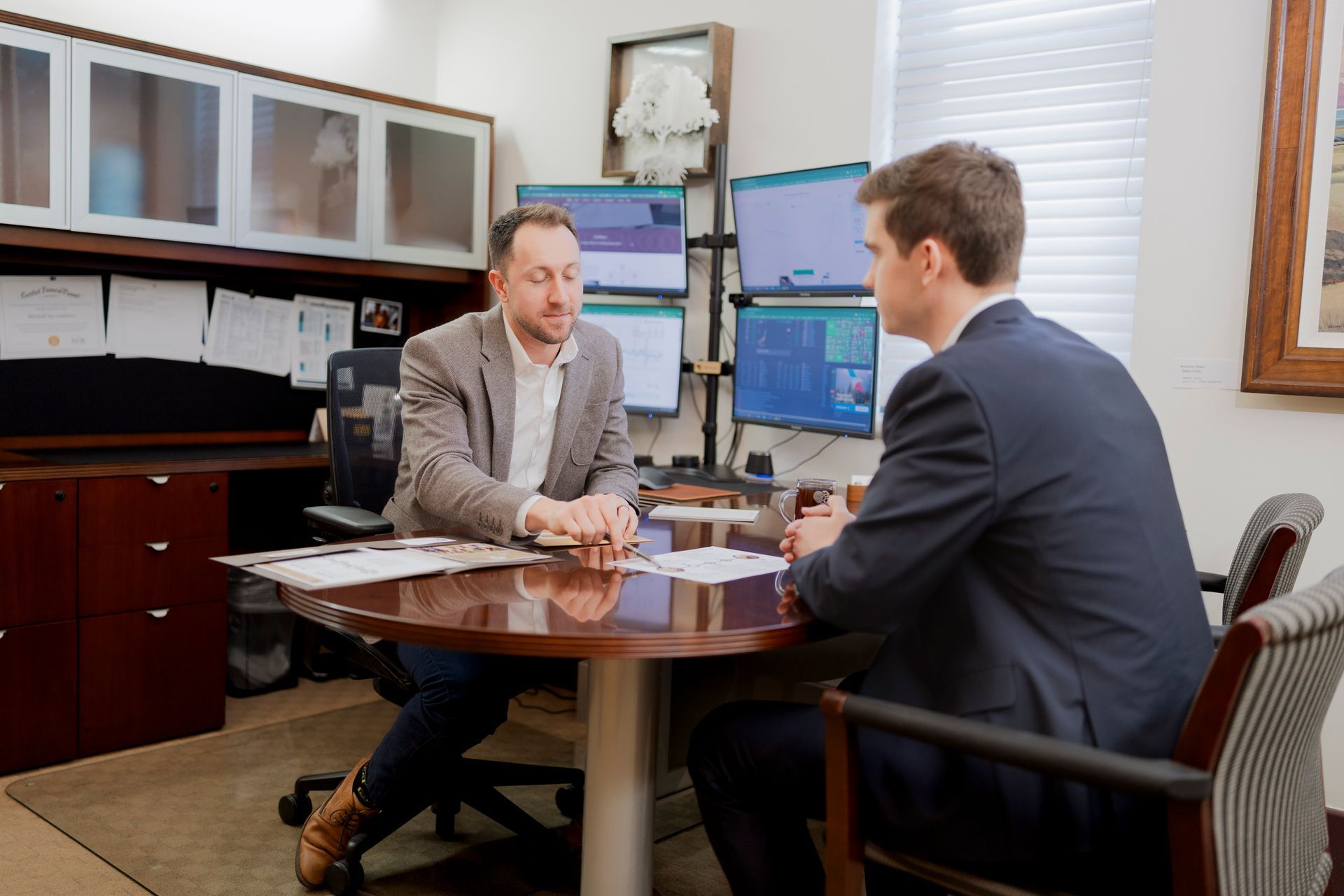Buttonwood Investment Policy Committee Update – March 13
Because we are emotional beings we tend to get caught up in the moment and not to see what looks obvious in hindsight. Squirrel ! Take the collapse of the tech bubble from 2000-2003 and mortgage meltdown in 2007-2009. Everyone loved everything, until they didn’t.
While our Buttonwood Investment Policy Committee (IPC) is very human, we try to separate the emotion from the logic. We have a process and a plan. We position assets proactively based upon our view of where we are in the economic / business cycle, and each of our clients unique needs. In these days of computer trading and algorithms it is very difficult wait until something happens before re-positioning investment assets as the markets are moving faster than ever.
So we take a more logical approach. As the risks to the economy, and thus the markets, increase we decrease investment risk. Over the last year or so, we have been slowly de-risking: Our focus being to participate but defend. Before 2020 started, we had reduced risk in our bond investments by trimming exposure to riskier, lower rated bonds. We had shifted our overweight in stock investments from growth stocks to value stocks; companies with cleaner balance sheets, stronger earnings and higher dividends. We removed direct exposure to Oil and Real Estate, which tend to underperform as the economy is slowing. (If you would like to dig deeper, Fidelity has a good overview about business cycles.) This week we took another step and reduced our exposure to foreign currency and foreign bonds. Like other recent sales, the proceeds from this sale will be added to money market.
We also take a technical view of the stock market, allowing us to make shorter term tactical decisions: When to invest cash and when to hold cash. In December we increased our allocation to cash and began to hold year end distributions, dividends and interest rather than reinvesting.
We had a plan, and each of these business cycle and tactical adjustments has had a positive impact by protecting assets as the stock markets around the world have declined.
An ever-changing dynamic… Up one day and down the next!
These days, markets seem to be moving on three data points: Coronavirus headlines, the oil and interest rate collapse, and what fiscal stimulus government and/or central banks will be implementing. There are likely more concerns yet to reach the headlines: Challenges to State and Local tax collections and thus the municipal bond markets, etc.
The average bear market removes about 36% from the S&P 500 and lasts for about seven months, according to Dow Jones Market Data. For perspective, the S&P 500 is down about 25% since February 20 th . It will be interesting to see if this will be an ‘average’ event.
To parrot our previous posts, we believe the consumer remains the key to continued growth for the US economy. Early in March we made the comment, “If the consumer reacts to coronavirus as if it is a short-term problem; and continues spending, we believe it’s possible for the stock markets and economy to rebound. If however, the consumer views coronavirus as a life changing event, this could lead to the next recession.”
As time continues to progress, it seems to us, the consumer is losing the ability to control whether or not to spend (and keep the economy going.) Entire countries are now closed for businesses, and every day more events, conferences and meetings are being canceled. On the surface this doesn’t look good, but there are positives. Interest rates are at record lows and providing an opportunity for debt/mortgage refinance, the low price of oil is reducing the cost of fuel (assuming we are going anywhere) and if the consumer can’t go out, delivery and online shopping are real alternatives.
While looking somewhat neurotic in the short term, the investment markets are fairly efficient at positioning for the future. The forecast of lower or no growth means sideways markets – where this started. The forecast for negative growth (recession) often means negative returns. We think it’s probable economies like China, Germany and Italy will officially register 2 quarters of negative GDP growth, triggering an official recession. It’s also possible we could see the same here in the US if enough of us stay home. If we do stay home, and as the seemingly 3-month coronavirus trend ends, we will likely have extra money in our bank accounts which could lead to a much shorter and milder recession than we saw in 2008-2009.
We will continue to implement our plan!
Beyond positioning assets for the economic cycle and tactical cash, when the markets are declining, before we implement a material strategy change, we generally wait until we have a period of time in the markets without a new low. With the recent volatility, it is likely we will continue in our current defensive position. This was the process we used in 2008-2009 and most recently in Q4 2018. Again, with algorithms and computer trading leading to big / fast moves, this strategy will likely not let us catch the exact bottom, but if the market falls further, it also means, as the saying goes, we didn’t ‘ catch a falling knife.’
These record setting days of volatility and uncertainty are part of the world we live in today. We have a logical plan we believe will be able to produce a more consistent rate of return over full economic cycles: The focus for the Buttonwood Investment Policy Committee (IPC). And with a more consistent rate of return, you will have a smoother financial ride through life.
If you have specific questions about our strategy, please let us know and we will review specifics at our next meeting. And while we don’t recommend fixating on short term market fluctuations, if you would like to check specific performance of your investments, our Buttonwood Portal is available 24/7/365, or you can contact us and we can provide reports specific to your questions and life.
Enjoy friends, family and these early Spring days – even if events are cancelled and you are quarantined in your back yard!
The post Buttonwood Investment Policy Committee Update – March 13 appeared first on Buttonwood Financial Group, LLC.
Recent Buttonwood Articles

Are you ready to explore the benefits of your very own Family CFO?





